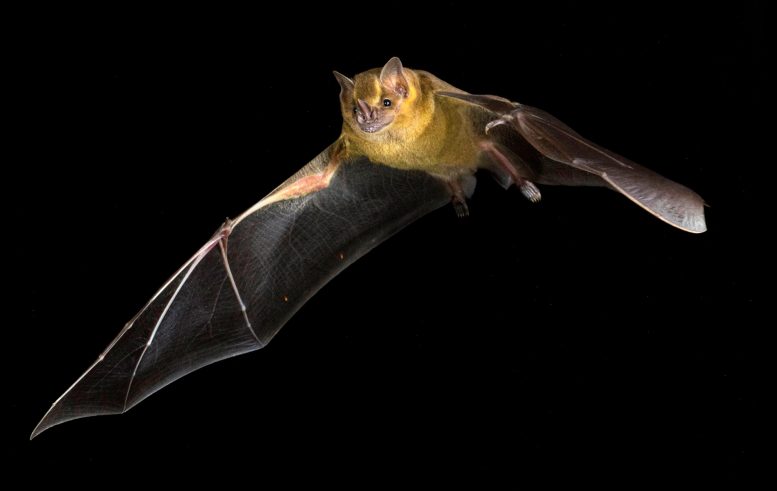
Artibeus jamaicensis, the Jamaican fruit bat. Credit: Brock and Sherri Fenton/Genome Biology and Evolution
Recent research reveals bats’ rapid evolution could be the reason for their unique resistance to infections and cancer. By sequencing bat genomes and comparing them with other mammals, significant genetic adaptations linked to disease resistance were discovered.
Rapid Evolution in Bats: Key to Disease Resistance and Cancer Prevention
New research shows that rapid evolution in bats may account for the animals’ extraordinary ability to both host and survive infections as well as avoid cancer. A new paper on the study was recently published in Genome Biology and Evolution.
Bats are exceptional among mammals for not only their ability to fly but also their long lives, low cancer rates, and robust immune systems. Bats are also thought to have played a role in the emergence of SARS-CoV-2. The ability of bats to tolerate viral infections may stem from unusual features of their innate immune response.
Implications for Human Health
These characteristics make bats an interesting animal to investigate, because they may have implications for human health. For example, by better understanding the mechanisms of the bat immune system that allow bats to tolerate viral infections, researchers may be better able to prevent disease outbreaks from animals to people. Comparative genomic analyses of bats and cancer-susceptible mammals may eventually provide new information on the causes of cancer and the links between cancer and immunity. Studies of bats and other organisms complement studies based on mouse models; mice are more amenable than bats to experimental manipulation but exhibit fewer characteristics with implications for human disease.
Genomic Analysis Reveals Surprising Insights
Here researchers using the Oxford Nanopore Technologies long-read platform, and bat samples collected with help from the American Museum of Natural History in Belize, sequenced the genomes of two bat species, the Jamaican fruit bat and the Mesoamerican mustached bat, and carried out a comprehensive comparative genomic analysis with a diverse collection of bats and other mammals.
The researchers found genetic adaptations in six DNA repair-related proteins and 46 proteins in bats that were cancer-related, meaning that researchers have previously found such proteins suppress cancer. Notably, the study found these altered cancer-related genes were enriched more than two-fold in the bat group compared to other mammals.
“By generating these new bat genomes and comparing them to other mammals we continue to find extraordinary new adaptations in antiviral and anticancer genes,” said the paper’s lead author, Armin Scheben. “These investigations are the first step towards translating research on the unique biology of bats into insights relevant to understanding and treating aging and diseases, such as cancer, in humans.”
For more on this research, see Unraveling Bats’ Immunity Secrets Against Viruses and Cancer.
Reference: “Long-Read Sequencing Reveals Rapid Evolution of Immunity- and Cancer-Related Genes in Bats” by Armin Scheben, Olivia Mendivil Ramos, Melissa Kramer, Sara Goodwin, Sara Oppenheim, Daniel J Becker, Michael C Schatz, Nancy B Simmons, Adam Siepel and W Richard McCombie, 20 September 2023, Genome Biology and Evolution.
DOI: 10.1093/gbe/evad148
Funding: NIH/National Institutes of Health, Simons Center for Quantitative Biology, Cold Spring Harbor Designated Cancer Center









Be the first to comment on "Bats vs. Cancer: Unraveling the Genetic Secrets of Nature’s Supermammals"